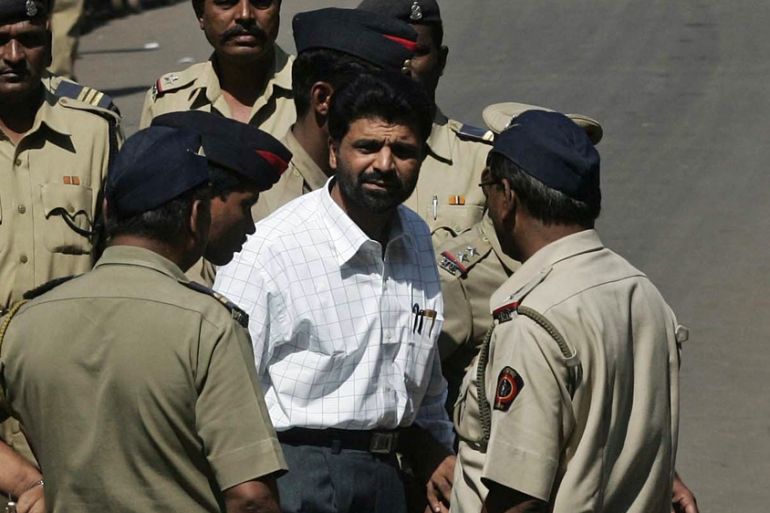India blasts convict Yakub Memon’s mercy plea rejected
Mumbai 1993 bombing plotter is due to be hanged on July 30 after top court rejects final appeal, local media reports.

India’s top court has rejected a final appeal by Yakub Memon, a key plotter of bomb attacks that killed more than 200 people in Mumbai in 1993, paving the way for his execution.
Media reports on Tuesday said Yakub Memon would hang on July 30 after the Supreme Court rejected his final plea, more than two decades after the deadliest attacks ever to hit India.
Keep reading
list of 4 itemsPolice make multiple arrests in ‘largest gold theft in Canadian history’
Woman, seeking loan, wheels corpse into Brazilian bank
Venezuela and Honduras announce actions to protest Ecuador’s embassy raid
Crimes such as these deserve maximum punishment. But we believe that the maximum punishment should not be the death penalty because it is inherently inhumane
The blasts targeted the Bombay Stock Exchange, the offices of Air India and a luxury hotel, and left 257 people in India’s commercial capital dead.
The attacks were believed to have been staged by Mumbai’s underworld in retaliation to anti-Muslim violence that had killed more than 1,000 people.
Memon was the only one of 11 people convicted for the 1993 attacks to have his death sentence upheld on appeal. The sentences on the others were commuted to life imprisonment.
Executions are only carried out for “the rarest of rare” cases in India, but President Pranab Mukherjee has rejected a number of mercy pleas in recent years, ending an unofficial eight-year moratorium.
SC dismisses Yaqub Memon's plea to recall death sentence http://t.co/yfKQTE3Ep6 pic.twitter.com/QihcpTsPx3
— Manorama Online (@manoramaonline) April 9, 2015
A Kashmiri separatist convicted of involvement in a deadly 2001 attack on the Indian parliament was executed in 2013, while the lone surviving gunman from the deadly 2008 Mumbai attacks was hanged in 2012.
“Inherently inhumane”
“Crimes such as these deserve maximum punishment,” Meenakshi Ganguly, South Asia director for Human Rights Watch, told AFP news agency.
“But we believe that the maximum punishment should not be the death penalty because it is inherently inhumane,” she said.
Rarest of the rare, not so rare anymore. The SC is allowing death for Yaqub Memon . https://t.co/5Ksu6BD03d
— Karuna Nundy (@karunanundy) July 21, 2015
Memon, an accountant by profession, denied any involvement in the blasts at his trial, which lasted eight years and ended in 2003.
He and two of his brothers, Essa and Yusuf Memon, were convicted in 2006 under Indian anti-terrorism laws of conspiracy and abetting the attacks.
Another brother Tiger Memon was alleged to have masterminded the attacks along with Mumbai gang boss Dawood Ibrahim. Both have been on the run since 1993.
The Memons left for Dubai in the days before the bombs exploded but were arrested when they returned to India in 1994.
Yakub Memon decided to return to India from Pakistan in 1994, protesting his innocence. He was detained shortly afterwards in circumstances that remain unclear: he has said he turned himself in, but police claimed an arrest, according to the Reuters news agency.
Eight members of the family were charged over the attacks but Memon’s father died during the long-running legal proceedings, and three others were acquitted.
They had all denied any role in the attacks.